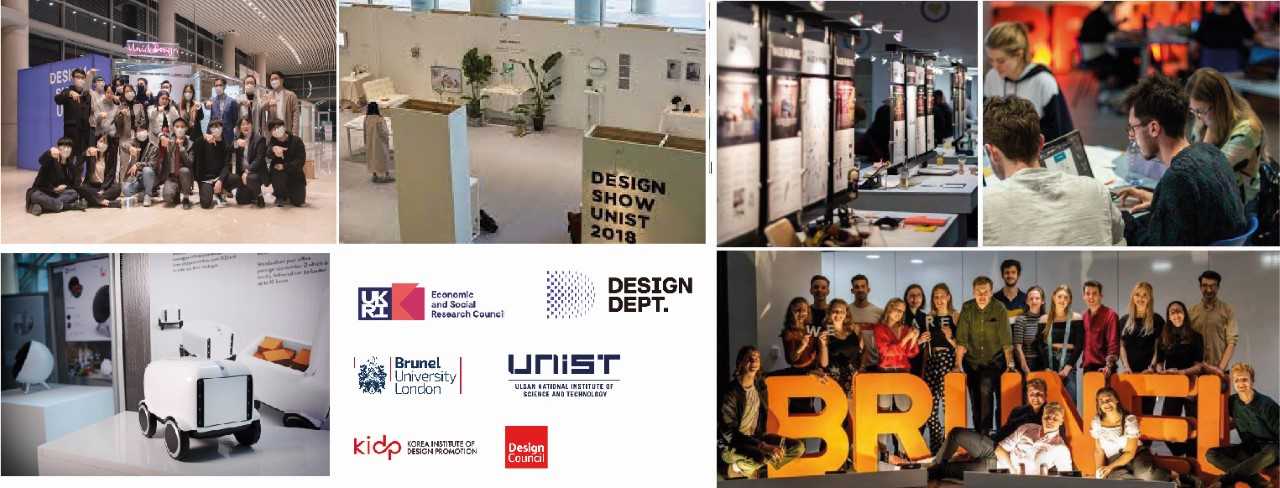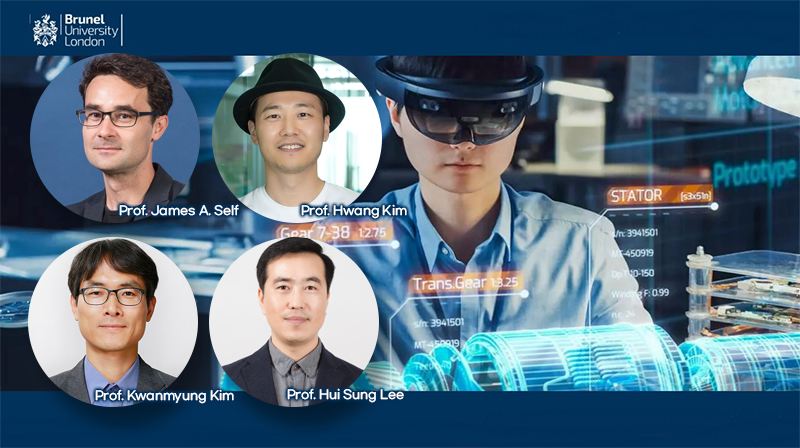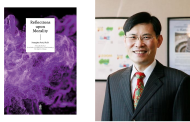The UNIST Department of Design announced that it has recently embarked on a new project on the Future of Technology-driven Creative/Design Education (Design Education 4.0), in collaboration with Brunel Design School in London, UK.
The proposed project is aligned with the UK Government’s strategy for sustained, strategic advantage through education of Science and Technology (S&T) subjects. Professor James A. Self, Professor Kwanmyung Kim, and Professor Hui Sung Lee in the Department of Design at UNIST will be participating as co-investors in this. Professor Hwang Kim (Department of Design, UNIST) from Project Co-I will be also participating as a co-investor.
For the project, the team has been awarded 45,000GBP in funding from the UK RI (ESRC Research Council), along with contributions in kind from the Korea Institute of Design Promotion (KIDP) and the Design Council in the UK.

Higher education must equip future designers to work at the intersection between disruptive technologies and people, thereby applying design to identify opportunities for innovation, noted the research team. Drawing upon existing expertise in interdisciplinary approaches to convergent design and technology education, this proposed project will provide a platform to explore best-practice in pedagogic approaches at UNIST Design Department and Brunel Design School.
Although the design is located within arts and humanities, the integration of S&T within the design curriculum is important for the UK’s sustained position as a leader in design and innovation. The Korean government’s initiative towards integration between design creativity and technology also makes this project timely for institutions and education service providers in South Korea.
New and disruptive technologies, such as Artificial Intelligence (AI), are having a profound effect on contemporary product design. As a result, the skills and knowledge required to drive innovative product design futures are changing. The COVID pandemic has accelerated the reach of disruptive technologies and their role in people’s lives. It has also accelerated the need for change in education to equip future designers with the skills required to innovate at the intersection between people and technology-driven design futures.
They expect that this project will solve the problem by looking at the intersection between technology, design, and bigger societal challenges, and applying insights to define the skills and knowledge required of future designers. The project also aims to provide new teaching approaches for the integration of technical skills and knowledge (Design + AI, Product Design 4.0), thereby responding to disruptive changes within industry and society through design.
The focus of this project is to innovate the design curriculum to meet changing industry and societal needs, which we term Product Design 4.0. This will be achieved through a framework of activities on design-technology convergence.
Dr. Eujin Pei
Associate Dean (CEDPS-ADQAA)
T: +44 (0)1895 268055
E:eujin.pei@brunel.ac.uk
Story Source
Materials provided by Brunel University London.
Notes for Editors
The online version of the original article can be found HERE.











![[2026 UNIST Matriculation] “Design Questions the World Has Never Seen!”](https://news.unist.ac.kr/wp-content/uploads/2026/02/사진-박종래-UNIST-총장이-2026년-입학식사를-전하고-있다-1-1-190x122.jpg)
![[2026 UNIST Commencement] “Become Way Makers Who Open Paths Where None Are Drawn!”](https://news.unist.ac.kr/wp-content/uploads/2026/02/사진-박종래-총장이-UNIST-학위수여식사를-전하고-있다-3-1-190x122.jpg)
![[2026 UNIST Commencement] Voices of Class of 2026](https://news.unist.ac.kr/wp-content/uploads/2026/02/Untitled1-190x122.jpg)



